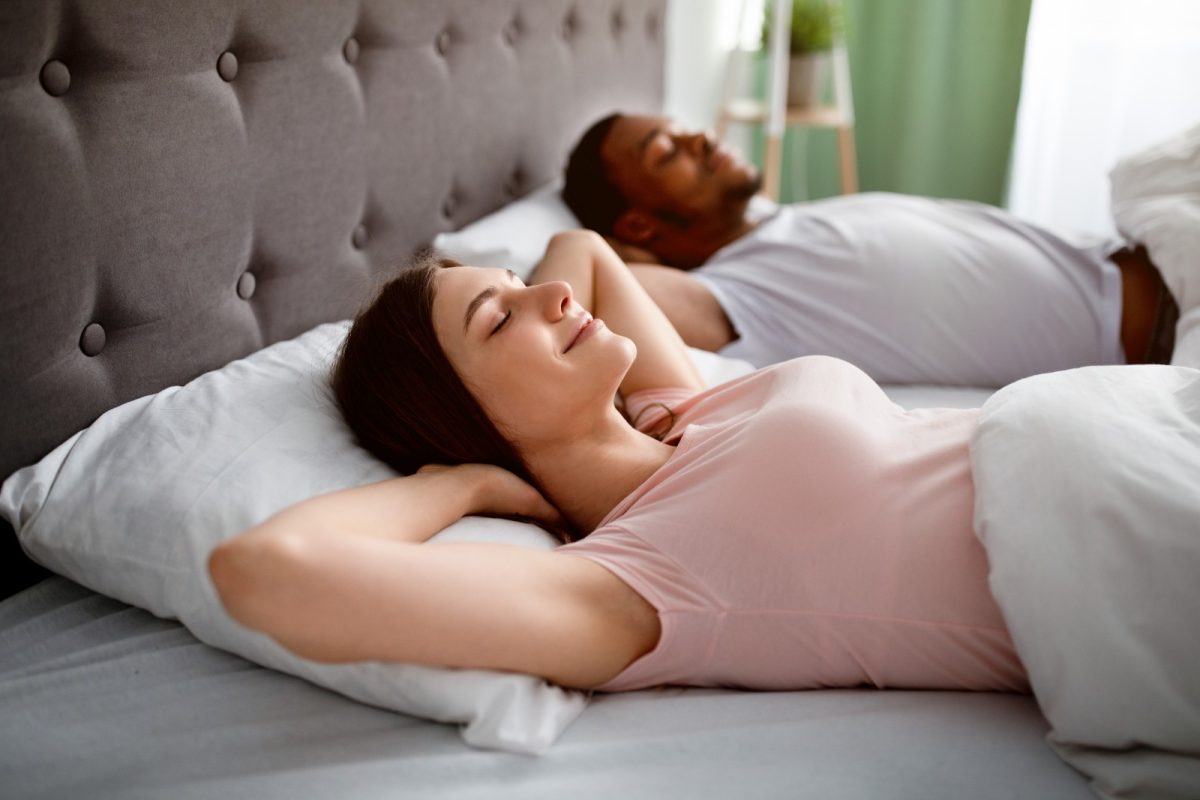In today’s fast-paced world, quality sleep often takes a backseat to work deadlines, digital distractions, and daily stress. However, getting the recommended seven to nine hours of sleep each night is essential—not just for energy—but for your overall physical, emotional, and mental well-being.
Dr. Anita Bapat, a Primary Care Physician at Bayhealth, highlights how sleep deprivation affects everything from brain function to immune health and why addressing insomnia early can significantly improve your quality of life.

The Hidden Dangers of Sleep Deprivation
Lack of sleep doesn’t just make you groggy—it can have serious health consequences. Over time, chronic insomnia or poor sleep habits can contribute to:
-
Weakened immunity
-
Weight gain and metabolic disorders
-
Increased risk of heart disease and diabetes
-
Reduced cognitive performance and memory
-
Mood swings, anxiety, and depression
-
Poor judgment and risky behavior, including drowsy driving
When your body misses out on deep, restorative rest, every system is thrown off balance.
Common Sleep Complaints and Their Causes
“I Can’t Fall Asleep”
Dr. Bapat says one of the most frequent complaints she hears is the inability to fall asleep. In many cases, this is triggered by anxiety or racing thoughts. Whether it’s worrying about a loved one, work responsibilities, or parenting duties, stress can keep the mind active long after the lights go out.
“I Wake Up and Can’t Go Back to Sleep”
Interrupted sleep or difficulty staying asleep is another common concern. Often, unresolved emotions or underlying depression can disturb sleep in the early morning hours. This fragmented sleep leads to feeling unrested, even after a full night in bed.
How Sleep Impacts Your Daily Life
Even a single night of poor sleep can impair your focus, coordination, and decision-making. Over time, this sleep deficit builds up, leading to “sleep debt” and problems such as:
-
Low productivity
-
Forgetfulness
-
Emotional instability
-
Increased likelihood of accidents (especially while driving)
-
Relationship strain
Natural Ways to Improve Sleep Without Medication
While sleeping pills can offer temporary relief, Dr. Bapat strongly recommends trying non-pharmaceutical methods first. These strategies focus on resetting your body’s internal clock and calming the mind.
1. Practice Good Sleep Hygiene
Consistency is key. Go to bed and wake up at the same time every day, even on weekends. This trains your body to expect sleep at a regular hour, improving overall sleep quality.
2. Create a Calming Bedtime Routine
Avoid stimulating activities like watching dramatic TV shows or scrolling through social media before bed. Instead, try:
-
Listening to soothing music
-
Reading a book
-
Taking a warm shower
These activities help cue your brain that it’s time to wind down.
3. Exercise Earlier in the Day
Physical activity helps improve sleep, but timing matters. Dr. Bapat recommends exercising at least three hours before bedtime, as late-night workouts can energize your body and make it harder to fall asleep.
4. Watch What You Eat and Drink
Avoid caffeine, nicotine, and large meals before bedtime. Instead, opt for a warm glass of milk or herbal tea. Milk contains tryptophan, which has natural calming properties.
When to Seek Medical Help for Sleep Problems
Sleep issues may seem minor, but persistent insomnia can be a sign of a more serious condition such as:
-
Sleep apnea
-
Generalized anxiety disorder
-
Depression
-
Restless leg syndrome
If sleep difficulties are affecting your health or daily functioning, don’t dismiss them. A doctor can help you identify root causes and recommend solutions, including therapy or diagnostic sleep studies if needed.
Don’t Stress About Sleep—That Makes It Worse
Ironically, worrying about sleep can make it even harder to fall or stay asleep. Dr. Bapat advises not to panic if you have a rough night.
Learning to let go, especially when your body isn’t cooperating, can reduce the mental pressure that often fuels insomnia.
The Path to a Healthier, Happier You
Sleep isn’t a luxury—it’s a necessity. When you prioritize rest and practice healthier habits, your mental clarity, emotional resilience, and physical vitality will all improve.
A well-rested you is a better you.
Frequently Asked Questions :
Q1: What is the ideal amount of sleep for adults?
A: Most healthy adults need 7 to 9 hours of sleep per night to function optimally. Consistency is more important than catching up on weekends.
Q2: Is it better to avoid sleep aids?
A: Yes, unless prescribed by a physician. Natural sleep routines, improved lifestyle habits, and stress management are typically more sustainable.
Q3: Can stress or anxiety really keep me awake at night?
A: Absolutely. Mental stress and emotional overload are among the most common reasons people struggle to fall or stay asleep.
Q4: When should I see a doctor about my sleep issues?
A: If you experience persistent difficulty sleeping, especially if it affects daily life, concentration, or mood, see your primary care provider.
Q5: Are naps good or bad for sleep health?
A: Short naps (15–30 minutes) can be beneficial. However, long or late-day naps may disrupt nighttime sleep.




